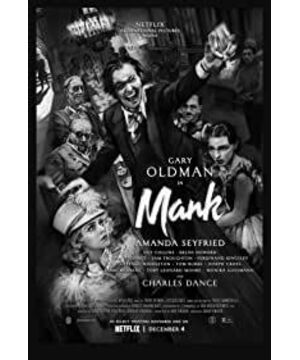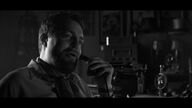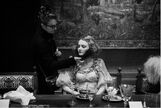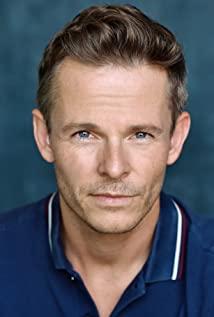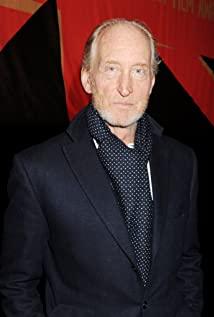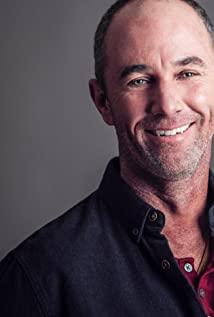The director talks about his latest work "Mank": a legend about political influence and creative behavior in Hollywood history
Mark Harris (Vulture columnist)
"Mank" will be screened in limited theaters on November 13
"Mank" image photo: Miles Crist/Netflix
David Fincher’s 11th feature film "Mank" is a passionate project. It is not like other works on Vinci’s resume—a drama shot in black and white about the achievements of Hollywood’s famous era. Over time, the director called it the extreme emotion of sorrow and joy produced in the process of "forcibly realized cooperation" between the director and the screenwriter. By telling about an impossible hero: Herman J. Mankiewicz (played by Gary Oldman), a journalist who turned into a screenwriter, and co-written with Orson Wells (or independently, this (Depends on your point of view) The story of the "Citizen Kane" script alludes to the ruthlessness of Hollywood studio politics in the golden age.
The film will be screened in limited theaters on November 13 and on Netflix on December 4. Each frame of it is full of the director's love and non-personal views on film history and production. It also carries an unexpected impact. This political repercussion caused by media manipulation and the creativity of false news information was impossible to predict when Vinci’s father Jack first wrote the script 30 years ago. . "Mank" is an extraordinary personal film for Vinci, not only because it is a commemoration of his father's work who died in 2003, but also because in a sense, it is a tribute to Vinci and his son. The continuation of the passionate dialogue between the two about the film when Vinci was a young boy. Its history also extends Vinci's entire filmmaking career-the original draft was written before he went to direct the first film. In two interviews over a long weekend, the director talked freely about the process of bringing the movie to the screen.
Mark Harris: When you filmed "Social Network," you told me that during the production process, you often said to Alan Sorkin: "We are making a John Hughes version of "Citizen Kane." You and I All at about the same age, I've been a movie fan since I was a kid, just like you. Even before I watched "Citizen Kane", I knew from the universally recognized common sense that this is the greatest American movie in film history."
David Fincher: Indeed. My father, because he was a journalist, he has always believed that the greatest entertainment is written by someone who understands the real world. His love for "Front Page Headlines and Citizen Kane" certainly supports him best The movie is rooted in the realistic ideas of the creator. When I was about 7 years old, my father began to explain his insistence on this point of view and how the animation was made, as well as the concept of punched celluloid (old film). He did a lot of interpretation work to me, so that even at that age I was very convinced that film would be my life's work. When we talked about very stupid topics, such as "Are the Beatles the best band in the world", he would say "There are different opinions on this issue." But when the question becomes "What is the greatest movie" "At that time, my father would answer "Citizen Kane" without thinking. I remember when I was 12 years old, I told my father that we would watch the 16mm version of "Citizen Kane" in the film appreciation class. I was a little silent because... a movie from 33 years ago? It is as old as a rock mural. But when I watched it, I was shocked. Without understanding the superb skills of the director, I think it has an absolute sense of reality, unlike "Elves Cat Catch Thieves" and "Universal Golden Turtle" (both are children's movies in the 1960s). I was deeply shocked by the films I watched. I think I saw something that I didn't understand in the past but was very important on many levels.
Mark Harris: It sounds like it shocked you when you were still watching children's movies.
David Fincher: In our family, my father believes that quality is greater than quantity. My father grew up in a movie theater. His father is an alcoholic, and his mother has been working, so he spends a lot of weekends watching the same Tom Meeks Western movie three times without any supervision. For him, this is a peaceful and safe place. . If I went to watch "Western World" (a 1973 movie, not a current drama) or "Reincarnation" (1975), he doesn't care, but he would say "that's all rubbish." He was very tolerant of me watching bad movies, but he would also take me to see "Dr. Strange Love" when I was 9 years old, and take me to "2001 A Space Odyssey" when I was 7 years old. Until my mid-teens, we would go to the movies together every week. I remember the first time I watched "Alien", I told my dad "You come with me", and then I saw him hide his face awkwardly.
Mark Harris: Did your father tell you about Herman Kevich?
David Fincher: I don't think my father is even aware of Mankiewicz. The first time I came into contact with the "Citizen Kane Handbook" was in high school microfilms.
Mark Harris: Then you spent a lot of time before microfilming.
David Fincher: My father has this book in his library. Until he retired from the job of writing magazine stories, he said: "I want to write a script." He was about 60 or 61 years old at the time, and the first sentence he said was "What theme should I write about?" I said, "Why don't you write about Hermankiewicz?" He was moved by this idea, so he picked up a pen and used his best pen to create, but it only ended in a limited range. This is a story of a great writer erased from people's memory because of his grandiose and self-respecting character.
Mark Harris: When did this become the basis for your own career?
David Fincher: I haven't made a movie yet. I am going to do this. When I went to work in Pinewood for two years (referring to shooting "Alien 3") and experienced such a situation, I felt like I was a hired gun to produce a library index for a vertically integrated media group within a multinational company. . I have different views on how screenwriters and directors work. I am a little disgusted with this kind of anti-director creationist task. I think what the script really needs to discuss is the concept of execution cooperation: you may not like the fact that you need to take into account the many different rules and technical limitations in the filming process, but if you don’t understand this, you will Missing this part of the reserve. A script is like an egg. It needs to be given other substances to create cell division to reach a specific area. Only in this area can it be playable in three dimensions, recordable in two dimensions and can be shown to others. Watched. So it was very interesting for me and my father, because obviously I was very supportive of him. But when I read his first draft, I thought it was more or less a slander of Wells's image. When I was 12 years old, my father told me how Wells played every role-screenwriter, producer, director, star. So I know that part of him is in awe of Wells. Then after the script came out, I thought "Wow, who is this again?"
Mark Harris: What I really like about "Mank" is that it has a strong empathy for Mankiewicz, but it hasn't become anti-director because of it.
David Fincher: The first draft feels like revenge. I said to my father: "You are talking about two people setting up a stake on a 40-acre border, and the two will never meet. If you make a movie, this is absolutely impossible. You are wrong to write this. "In all his magazine stories about filmmakers, he knows the jargon, but he doesn't understand where the vision ends and where the field investigation begins. This is very difficult. We worked together for a while, and then I let go to film "The Seven Deadly Sins". He found Upton Sinclair (Note: American writer, socialist, representative of "slaughterhouse", created a lot of novels to expose the dark side of society, outside of writing also active in politics, has been involved in two California election defeat The third time was the election of the Republican Merian in the movie. That time, he won more than 800,000 votes but lost in the end.) The epic experience of political activities; he learned about the studio magnates Irving Salberg and Louis B Meyer (Note: Meyer is one of the founders of MGM. MGM’s name is a combination of Mitro, Godwin, and Meyer. Meyer’s appointment is the most glorious period of MGM. At that time, Meyer was also called the "King of Hollywood", and the famous academy and Oscars were also founded on his proposal. Owen Salberg was 20 years old to run Universal, 24 years old and Meyer joined MGM to do high. Guan, under the management of the two, they shot a series of well-known films. The trial screenings were also introduced by Salberg. Salberg died young at the age of 37. After that, the college set up an award named after him to commemorate him. Later excellent producers) how to team up with Hirst and create some pioneering fake news by intercepting fake anti-Sinclair news clips.
Mark Harris: After experiencing what Meyer and Salberg did to Sinclair’s campaign, the film hints that Mankiewicz felt that he had sacrificed his character.
David Fincher: Initially when my father showed me the script, I said, "I don't understand how this is a portrayal of the problematic relationship between Orson Wells and Herman Kevich." Jack is very serious. Said: "I think the key to the problem is that someone finds that their words are very important." At that time, a middle-aged man counted his life's contributions and it didn't touch me much. I am not sensitive to this because I was only 30 years old and I probably didn't realize what this opportunity meant to him. But when I started thinking about this, I realized that this is a shocking torso, it needs to grow red blood cells to build this story about a person finding a way to make a sound. How do you get inspiration from witty parents who are hungry for their children and end up in Hollywood? Herman and his brother Joseph stepped forward to help retain the voice of the film industry. I have always been very convinced that Herman thinks he lives a slum-like life, and I know my father is the same. So this is where the three of us can relate to each other. I remember when I was shooting a music video, people would always say, "Oh my God, is the George Michael MV you made? It’s really great!" I thought, restrain myself, it’s just with a group of people. A music video shot by a supermodel. I can relate to those.
Mark Harris: Did you still keep working together?
David Fincher: We never dig deep into it very thoroughly. I don't want to say that I gave up this project, or that he gave up this project, or I gave up him, or on the contrary he gave up me. But when I was 30 years old, unlike when I was close to 60 years old, I didn't resonate much with the thoughts left by a person. So this project was stagnant at the time.
Mark Harris: The introduction of Upton Sinclair's governorship into the script now seems to have an incredible response.
David Fincher: In which way?
Mark Harris: Well, apart from the fake news perspective, you have abandoned the notion that Hollywood has always been a bastion of progressive and free values.
David Fincher: Since Sinclair's story was grafted in, we have discovered a middle ground where we have a more accurate picture of what happened. I don't think Herman Mankiewicz will write a work that detracts from his image without knowing Hirst. I think Mankiewicz invested in this because he needs money. And when he started to create, he was encouraged by someone who didn't restrict him. That person kept saying "Keep digging deeper, keep going", and he finally wrote works that he was satisfied with.
Mark Harris: In this regard, I would like to ask you to interpret two paragraphs. One sentence is from Kyle’s article, she wrote: “The director should control everything, not because he is the only creative and intelligent person, but because only he controls everything in order to liberate and utilize the talents of colleagues.”
David Fincher: Pauline Kyle (a well-known film critic, published an article "The Road to Kane Cultivation" in the 1970s, and the article believes that the scriptwriting of "Citizen Kane" is entirely attributed to Mankiewicz, not Orsonwell S) is very good at watching movies. But what she doesn't know is that making movies is very time-consuming, laborious and costly. I believe that everything can be designed. This view will ultimately harm the development of the film industry-that is, the view that the film production process is like how NASA works. . Yes, the O-ring may fail, but in most cases, you are testing welding, bolts, electricity, and when it takes off from the launch pad you will say, "Yes, this is what we wanted to do in the first place." This is not the case in the film industry. The film industry is an incredible boutique fashion store that tells adventure stories. Every designer in the company works in a different way. You have to sew all the clothes to the model 45 seconds before the model walks on the runway. This is a nonsense show, a circus show of extreme chaos. It is not cold, nor can it be calculated, it is a warm and humid art.
Mark Harris: Another paragraph comes from your father’s script. When the first draft of "Citizen Kane" was written for Wells, Mankiewicz said: "I created a rigorous narrative and a Constructive direction. How does he take over? That is his job." Is this how do you think the screenwriter views the director, or how do you see the work of a director?
David Fincher: I think this passage is a screenwriter's greatest expectation for his script: "This is the end of my work. My part ends here." Then, it's like Superman flying into the sky. I think the reason why the "Citizen Kane" script is so good is because Herman wrote it well. "Wow, thank goodness my name won't appear on it. I'm going to work again." He took off his gloves and wrote as much as he could. There is no doubt-Wells is a fucking genius, in fact this was astonishing as his first movie. Anyone standing on his shoulders is in awe of him, but having said that, I have seen a movie adapted from a script written by him, which is not at the same level as "Citizen Kane".
Mark Harris: To what extent do you think Mankiewicz’s story will become a warning legend?
David Fincher: I never wanted to make it a warning. I think this is about two aspects of alcoholism. A guy who set himself on fire, and another person who would say, "Oh my God, he became much more interesting after he got drunk". It's pitiful to see a man's wife having to help him undress, but this is also his true side. Sometimes these people are ten times smarter than normal when they are drunk. It is definitely a contradictory point of view, but to me it is more real.
Mark Harris: Because the production of fake news and campaign films in the storyline is so close to the present, I am curious whether you have spent more effort to perfect the script after your father's death.
David Fincher: My father died in 2003. We tried to make it into a movie in 1997 or 1998. But we gave up before and after filming "Terror Space". By 2001, we went through a process from agreeing to photographing to disagreeing. It was placed on the bookshelf, and then my father became ill. For the last year and a half of his life, he has been undergoing chemotherapy and talking about it. But at that moment, everyone understood that he was running out of time. We reached a settlement on this. Until I finished filming "Psycho Hunter", Cindy Holland (the VP of original content at the time of Netflix ) and Ted Sarandos (CEO of Netflix ) asked me: "What do you want to do next? Do you have any project you always wanted to do?" Then I said, "Yes, it does." I went home and read the script again, and then I thought, "Wow, it's been here for so long, and it has become It's much more urgent." Suddenly, this belief became clear. I gave them the script and they said, "Let's do this." So the current movie was created. But as early as 2000, it was very difficult for people to understand the meaning of these fake news. They will say: "Why are you talking about this? So, some news films are fake-so what? You still have to give A for their efforts! Oh, and black and white film? Forget it, thank you."
Mark Harris: So black and white shooting has always been part of the plan?
David Fincher: Always. Many people said: "In addition to the black and white shooting part, there is also the age part, and the mono part, as well as this part about the guy who wrote "Citizen Kane". We love everything else." Fei, because they want to be the repository of everything, decided to put us in the category of everything.
Mark Harris: How much of the script has been rewritten?
David Fincher: Eric Roth and I re-read the script and talked about everything in it. He has always been a very capable cow, I mean he can hint at all stimuli. He can talk about things he doesn't understand at all. The first thing we started talking about was a scene in Jack’s writing where Mankiewicz was told: “This will be the biggest challenge in your life, because the handcuffs are now unlocked and I don’t need to take orders from any vice president. I'm here to make any movie I want, so it's just you and me, man." Eric said, "Oh my God, this is terrible." I said, "Look, this is what you know But what Jack doesn’t understand.” That is, you find a professional writing craftsman, and then you say to him: “'You don't have to be responsible to anyone, you just need to do it well.' What would you have to answer?” His answer was: "I am trapped." At that moment, I knew this was the person I was going to talk about together. Look, no one respects screenwriters more than I do. You are in the trenches with them, and they are in the same trenches as you. The foundation of all this is so hot, blind honesty and fragile. You must be able to say: "This is the worst thing you have ever written," and "I can't believe you will try to use it to prevaricate me." They must also be able to tell you: "Why don't you want to set goals more Higher?" We have ways to promote, stimulate, encourage, and humiliate each other. All these things must be fair in an intimate relationship.
Mark Harris: When did you decide to make this movie?
David Fincher: We finished the first season of "Psycho Hunter" without a producer, during which I was basically exhausted and stressed every week. Then we started to prepare the script for the second season, and finally I read the script and thought I didn't like the script at all. So we threw it away and started again. I invited Courtenay Miles. She worked with me as an assistant director and wanted to write this script. She eventually became the co-producer of "Psycho Hunter." But this is a 90-hour work week. It occupies everything in your life. When I finished, I was very tired. I said, "I don't know if I have the ability to do the third season."
Mark Harris: Have you been in Pittsburgh for a long time?
David Fincher: We lived there for nearly three years. Not year after year, but in three years, we spent about six or seven months each year. We have an apartment and a car there. "Mind Hunter" has a very important meaning to me.
Mark Harris: So in your opinion, "Psych Hunter" is over?
David Fincher: I think it's possible. Listen, it's an expensive show based on its viewing volume. We talked about "finishing "Mank" first, and then see what you think", but I really don't think the cost of shooting the third season will be less than that of the second season. To some extent, you must be realistically aware that the dollar you can get must be equal to the eyeballs it can attract.
Mark Harris: When was Mank filmed?
David Fincher: We started shooting in September and October last year, and we continued to shoot until the end of February this year, just before the end of the epidemic.
Mark Harris: The acting style in "Mank" obviously feels like pre-Brando, pre-method acting. How does everyone on the set quickly adapt to your pace?
David Fincher: I think there is a feeling in modern film performances that you should throw your emotional butterfly ball (non-spinning ball thrown by the pitcher) . This is a good starting point, but we chose to accept an old-fashioned performance style, that is, you hit the target, speak your lines, don't hit the furniture, and move on. So the first few days are very interesting, just let the actors shout out loud. It's not that this is what we expected, but we almost did it in the beginning. What Marlon Brando brings to the movie is an incredible gift and a curse. To surpass the idea of "I act with emotion, I can only do it a few times to ensure that the lens is in focus. That kind of idea does not apply here."
Mark Harris: How easy is it for your actors to reach the heyday style of the movie?
David Fincher: Gary Oldman can do anything. If you say to other actors, "You need to be like George Sanders (British actor, with masterpieces such as "The Four Greatest Legends", "Butterfly Dream", "International Intelligence Network") ," they will ask, "What? Who is that?" But Gary and Charles Dance, they will raise their brows and nod and smile, and they will know what you want. And some other people... It is very important for the young actors who have not seen the horrible loud lines performance style that we used to be used to adjust. It’s like, “It’s not a problem. When you raise your voice at the end, it sounds like you don’t know it’s not a problem.” A lot of these little things need to be adjusted.
Mark Harris: When the film started, Gary Oldman was 61 years old, much older than Mankiewicz, who was 43 when "Citizen Kane" was released. But I know Kael hinted that he was too old to play Mankiewicz, and F. Scott Fitzgerald called him the "destroyed man."
David Fincher: Look at me now 58 years old. Gary looks to me as old as me. Herman, 43 years old at the time, looked like 55 years old. By the time he died at the age of 55, he looked 70 years old. Herman's life is difficult. His addiction to tobacco and alcohol did not bring him any benefit. Similarly, we can find someone who has withered since the age of 43, but on my set, only the best actor can win the role.
Mark Harris: Does the new crown epidemic affect you?
David Fincher: We originally planned to shoot the entire movie on location and sound. But there are too many people outside, and you can hear the sound of leaf blowers in any neighborhood in Los Angeles. We did not do as much as planned, but we did a lot of other things. Because (Finch laughs) , I don't know if you know... I took a few photos. So we can steal audio from different places for post-dubbing, and we don’t need to shoot too much content on location in the end, which is great. Because this proved to be one of the strangest and most catastrophic treatment methods during the epidemic.
Mark Harris: In what way?
David Fincher: We walked into the studio and everyone was wearing a mask. Then they will come in with a sprayer to spray the room with antiviral agents. We will leave for half an hour, then come back and take six or seven lines and leave, and then they will fumigate. This is simply disheartening. Amanda Seyfried completed all her roles in her home in upstate New York. They sent her a complete set of equipment, and she completed all the post-dubbing through Zoom.
Mark Harris: This movie sounds like a work created in the studio years.
David Fincher: Sound designer Ren Klvce and I started talking a few years ago about how we can make it look like it was found in the UCLA archives-or waiting to be repaired in the basement of Martin Scorsese s work. All the details are done in the style of the 1940s movie. The music was recorded with an old-fashioned microphone, so it has a hiss and gasp around the edges-you can hear it in strings, but you will mainly feel it in brass instruments. What you will hear is a revival of an opera house, an old theater where movies are being played. It’s funny because I’ve played for some people, and they’ll ask, "What’s the matter with this sound? It sounds so warm." I replied, "Well, when you say'warm' you mean, it sounds It's like an old movie. It sounds like onomatopoeia." We spent three weeks on the mix trying to figure out how to split the atom. Visually, our idea is to shoot an ultra-high resolution image and then reduce its resolution. So we took almost everything and softened them to an absurd level to achieve the same purpose as the film quality of that era. In order to make it look the same as the texture of the old movie, we may have lost two-thirds of the resolution, and then we painted small scratches, small dents and cigarette burns on it.
Mark Harris: I noticed that you put a reel.
David Fincher: Yes, we made the original soundtrack to be cracked like a reel. This is one of the most comfortable sounds in my life. They are so subtle that it is difficult to feel them before you hear them. It has something we eventually call "Shen Yun". These tiny cracks and cracks are really beautiful.
Mark Harris: You are now among the top directors, but you work with screenwriters but don't write your own scripts. It is very unusual in today's era when directors and screenwriters often fit together. You won’t write a script for yourself, even though you have written the script, I am very sure that you have contributed to the completion of the script.
David Fincher: I am not a screenwriter. I don't sign for things I haven't done. Listen, I am the offspring of a screenwriter. I can't do this. I have witnessed someone put a blank sheet of paper into a 1928 Underwood typewriter and sit for 45 minutes. I know how lonely it is.
Let me put it this way, (in "Taxi Driver") Robert De Niro said "Are you talking to me?" is an improvisation, then does it mean that Robert De Niro should be regarded as "Taxi Driver" What about the co-writer of ""? No, in my opinion, this sentence should belong to Paul Schrader. Schrader provided everyone with a background to understand who this role is and what he wants. Obviously Robert De Niro is a genius, Martin Scorsese said: "This line will appear in the movie", he is also a genius. But will this reduce Schrader's achievements because he made such a carefully calibrated X, Y and Z at this moment? My attitude is: You won't get a membership card of the American Western Screenwriters Association because of this line.
Mark Harris: Obviously, that person is your father, so this brings the whole...
David Fincher: Yes, there is no doubt. I don't want to be passionate, but I want to say... my love for this movie is given by someone, and only with him can I talk about it and really dig out the story-and then he died. I did talk to Cean Chaffin (Finch's wife and producer) . She said, "How much did you do for yourself in the middle?" She said to me, "You fucking thought about this movie for too long. It's not good for you." There are some actors in this movie. It was not born when the script was written. A visual preview of two years is enough. Twenty years is too much. I have 9 versions of the script on my bookshelf. I want to empty that bookshelf, it's time to take a deep breath and make this movie.
Mark Harris: A few years ago when we talked about Mark Zuckerberg's undergraduate studies, you said: "I know it's like trying to direct a $60 million movie when I was only 21 years old. Among the adults sitting in a room, they think you are cute, but they don’t plan to let you control anything.” This makes me wonder if you also look at Wells in this way?
David Fincher: When you are 25 years old, you can't know what you know and don't know. If you are lucky enough to stand next to Gregg Tolan (the photographer of Citizen Kane, whose use of deep focus in the film is considered the pinnacle of this shooting technique) would really help. But it is undeniable that a 25-year-old young man, with an excellent script, an excellent photographer, and an excellent composition, made one of the greatest movies in American history. Movies are very complicated. It will cost a lot of money, and there are a lot of arrogant people engaged in it. When these are put into Soufflé, it is still expected to be lighter than air. Wells and Mankiewicz are people who really need each other. Tracking Hirst carries a kind of arrogance that many people don't. This is what Mankiewicz wanted to do but had not done before, but it was the mischievous smile of the 23-year-old "War of the World" director that made Mankiewicz's dream come true. I want to talk about this. I want to talk about cooperation. How to solve a trouble like Herman Mankiewicz? How do you get him out of his comfort zone? You take him away from the traps that can make him messy, you drive him out of the desert, and arrange a schedule for him. The result is still a mess of things, but interesting things are born from it. .
Original address:
Nerding Out With David Fincher
The translation time is rushed, please correct me if there are errors or omissions
View more about Mank reviews


